数码网上商城的设计与实现(VUE,SSM,MySQL)(含录像)(论文说明书11500字,程序代码,MySQL数据库)
摘 要
由于科学技术的快速进步,社会的每个领域都离不开电脑技术。随着电脑技术的不断进步,互联网的领域也不断扩大,带来了网络信息的增多。有些应用到通信领域,有些应用到商业领域,如在通过互联网出售商品等,目前,互联网已成成为社会上不可或缺的元素,而这个网络里最关键的元素就是网站。
通过数码网上商城这个平台,消费者足不出户就可以了解大量的商品信息,给消费者带来了极大的方便。数码网上商城平台的主要功能包括商品类别管理、商品信息管理等,根据客户种类又可以划分成管理员和普通用户两种。
本系统前台设计主要采用了JSP作为开发语言,后台设计主要采用了MySQL作为数据库管理系统,开发环境采用了Eclipse,服务器采用tomcat。是一种基于Web技术上开发出的B/S结构的数码网上商城。
关键词:数码网上商城,JSP,B/S结构
ABSTRACT
Due to the rapid progress of science and technology, every field of society is inseparable from computer technology. With the continuous advancement of computer technology, the field of the Internet has also continued to expand, bringing about an increase in network information. Some are applied to the field of communication, some are applied to the field of commerce, such as selling goods through the Internet, etc. At present, the Internet has become an indispensable element in society, and the most critical element in this network is the website.
Through the platform of digital online mall, consumers can learn a lot of commodity information without leaving home, which brings great convenience to consumers. The main functions of the digital online mall platform include commodity category management, commodity information management, etc. According to the type of customers, it can be divided into two types: administrators and ordinary users.
The front-end design of this system mainly uses JSP as the development language, the back-end design mainly uses MySQL as the database management system, the development environment uses Eclipse, and the server uses tomcat. It is a digital online mall based on the B/S structure developed on Web technology.
Keywords: Digital Online Mall,JSP,B / S structure
开发语言:Java
框架:SSM
服务器:tomcat
数据库:mysql
数据库工具:Navicat
开发软件:eclipse/myeclipse/idea


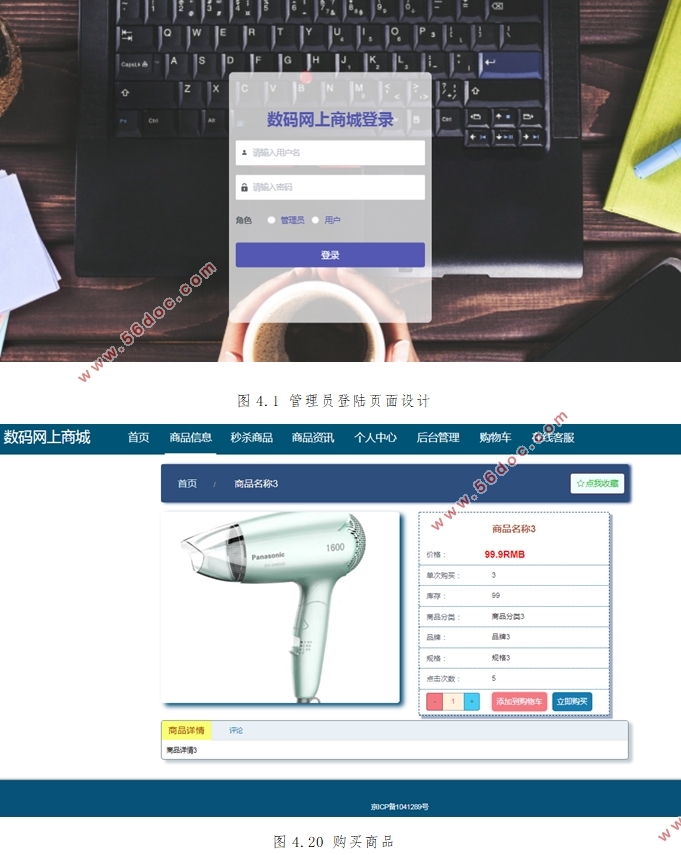
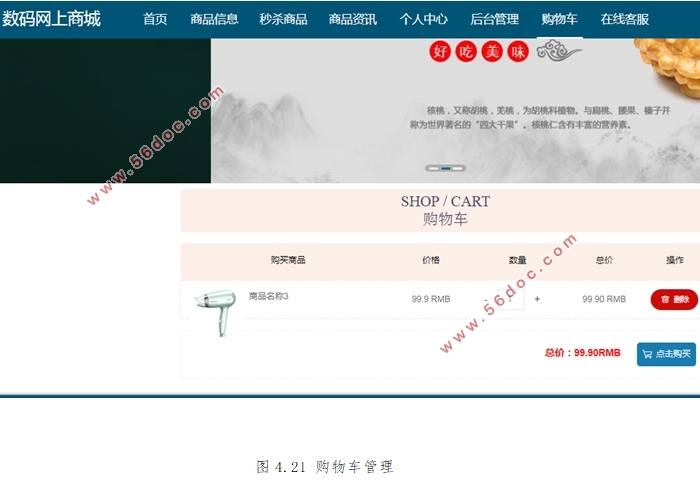
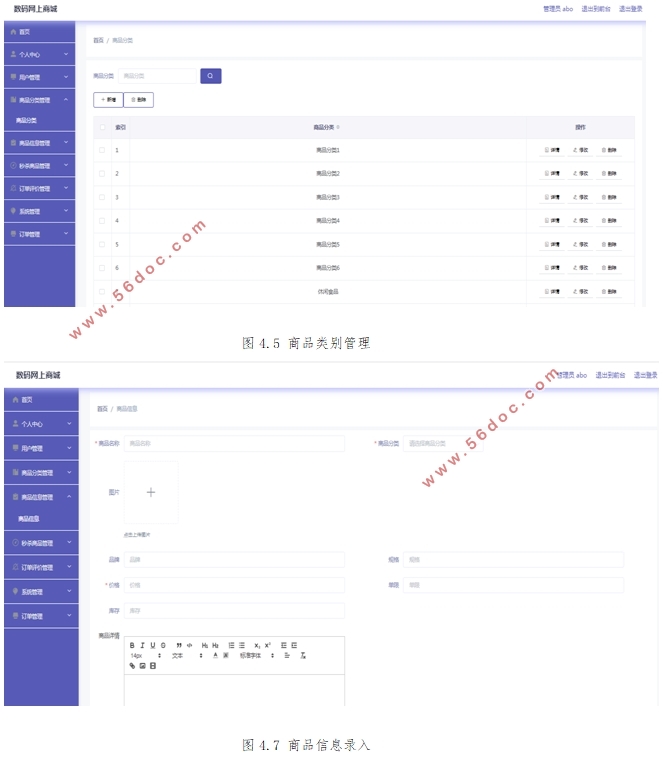
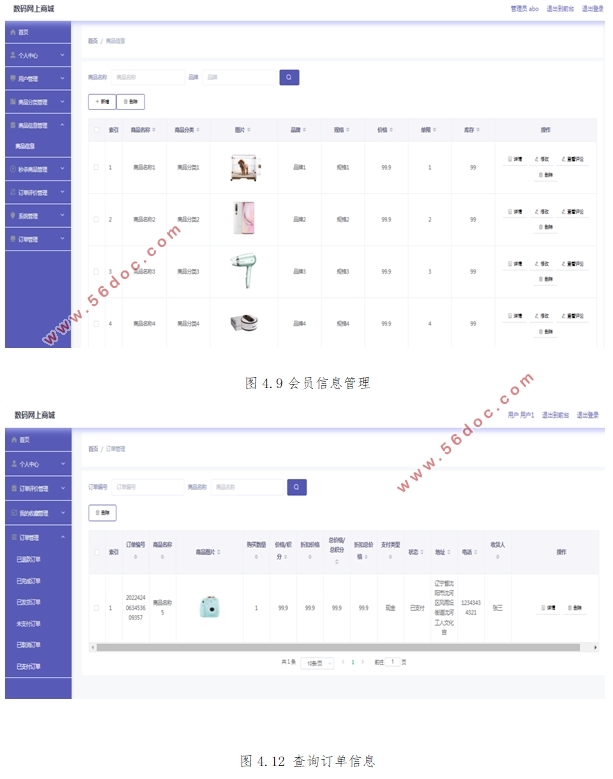
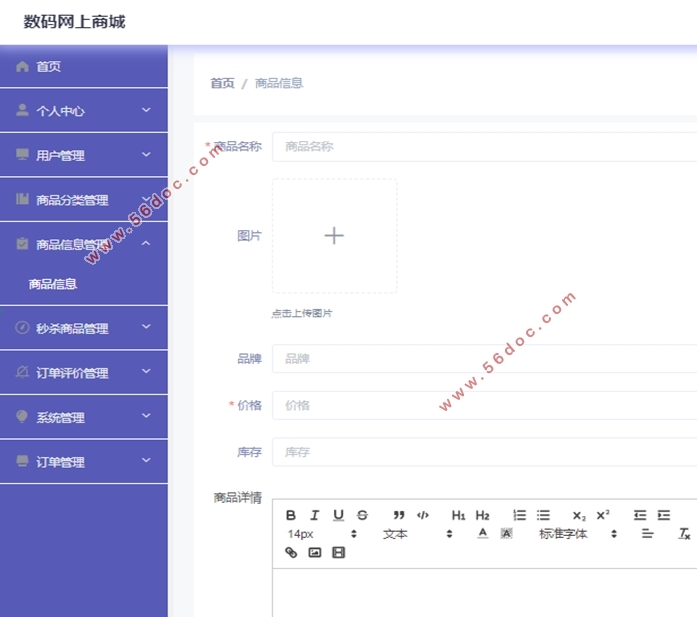
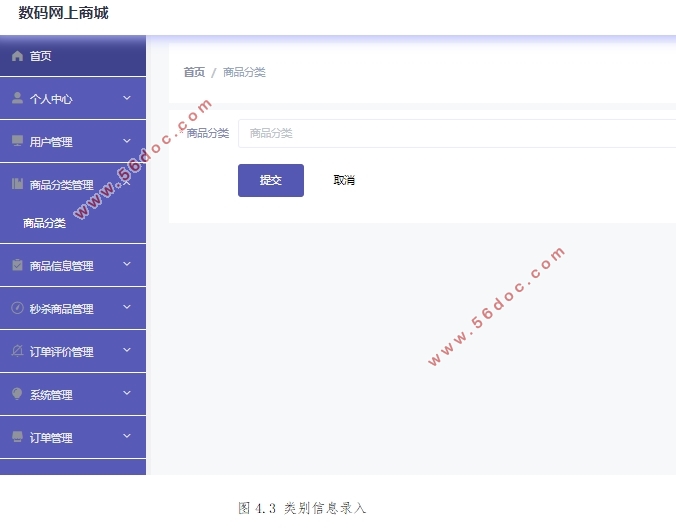
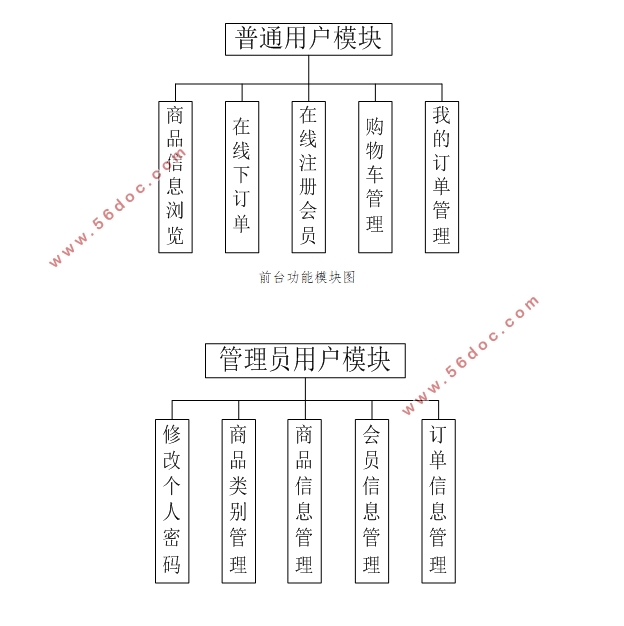
目 录
摘 要 I
ABSTRACT II
第一章 绪论 1
1.1课题背景 1
1.2目的和意义 1
1.3开发工具及技术 1
1.3.1开发工具 1
1.3.2 JSP技术 2
1.3.3 JavaScript 3
1.4软硬件需求 3
第二章 系统分析 4
2.1可行性分析 4
2.1.1技术可行性 5
2.1.2经济可行性 5
2.1.3操作可行性 5
2.1.4法律可行性 5
2.2功能模块分析 5
2.3设计的基本思想 8
2.4性能需求 9
2.4.1系统的安全性 9
2.4.2数据的完整性 9
2.5界面需求 9
第三章 数据库设计 10
3.1数据库的分析与设计 10
3.1.1数据库的概念结构设计 10
3.1.2数据库的逻辑结构设计 11
3.1.3数据库的连接原理 13
第四章 系统功能实现 14
4.1后台登陆页面 14
4.2管理员模块 16
4.2.1商品类别管理 17
4.2.2商品信息管理 19
4.2.3会员信息管理 21
4.2.4订单信息管理 23
4.2.5修改个人密码 24
4.2.6注销退出系统 25
4.3普通用户模块 25
4.3.1系统主页面实现 25
4.3.2会员注册模块 26
4.3.4用户购物模块 27
4.3.5购物车管理 29
第五章 系统测试 30
5.1系统测试目的与意义 30
5.2测试过程 30
5.2.1主页面的登录模块测试 30
5.3其他错误 31
结 论 32
参考文献 32
致 谢 34
|



















